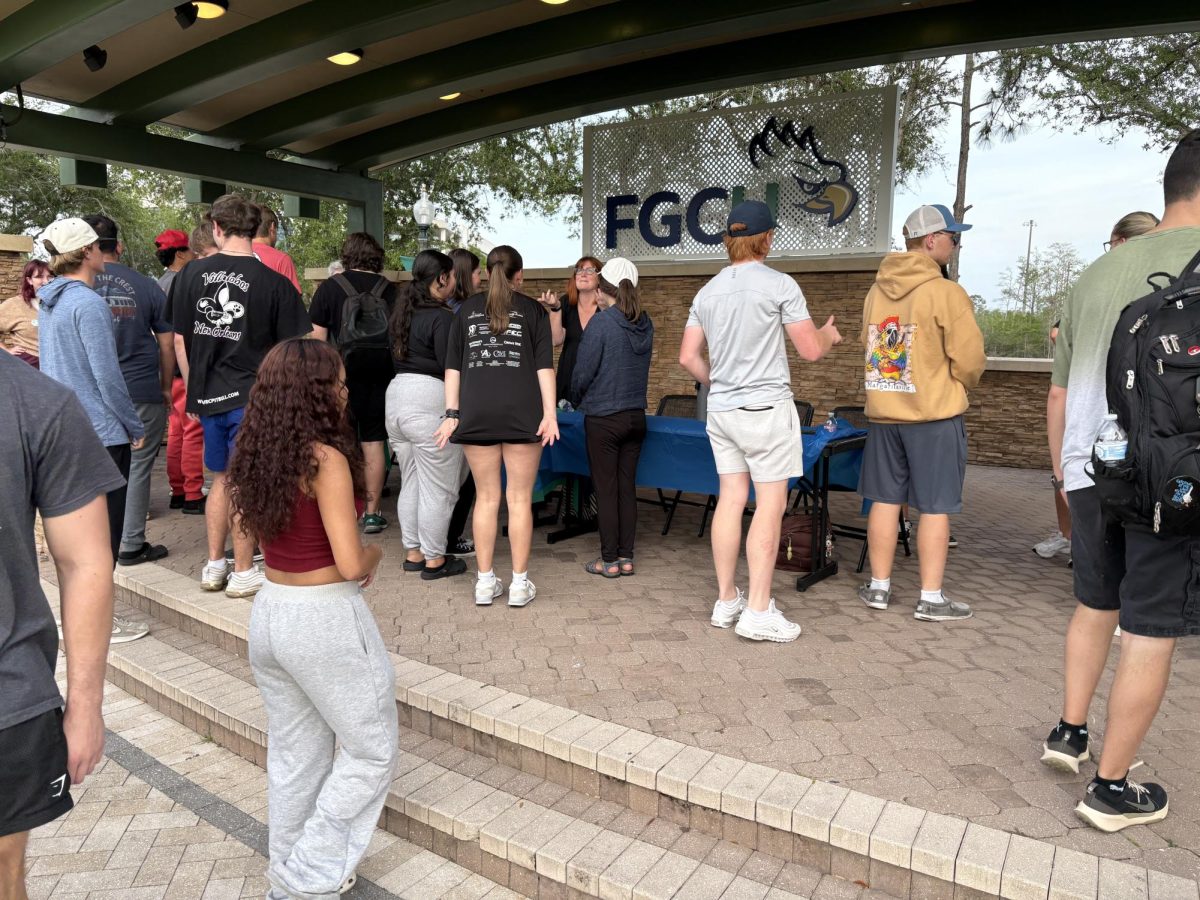Upperclassmen and faculty at FGCU might recall years in the past when they have witnessed that flying fear — swarms of bees surrounding outdoor garbage cans, gathering sugar from the bottoms of soda cans and the insides of candy wrappers.
But for the third consecutive year newer Eagles might not witness the same scene. This could be because of a technique the Physical Plant has been using with success — cherry-stone satchels.
Vikki McConnell, assistant director of business and finance operations at the FGCU Physical Plant, said that approximately three years ago the Physical Plant began using mesh satchels filled with cherry stones to deter bees.
“We did some research to see if there were alternative methods to death for the bees just because they were attracted to our waste receptacles,” McConnell said. “Bees are beneficial on campus; we just want to deter them from human interaction when possible.”
McConnell estimates that between 30 and 40 of the outdoor trash cans and solar compactors on campus have these satchels in place, and says the satchels are more effective than other methods the Physical Plant has used, which include a citrus oil-based product.
Junior software engineering major Shawn Hansen said he hasn’t noticed as many bees this year as he did his freshman year.
“They used to be all over by the Cohen Center,” Hansen said. “Now there’s still a lot over there, but not as many.”
The Plant generally receives bee-related complaints about waste containers outside of the Cohen Center or Subway, but McConnell cannot recall any incidents of bees swarming people.
“I think it’s more fear that they might be stung,” McConnell said of complainants. “It’s most likely a deterrent for people to use the container.”
Freshman Victoria Philips hasn’t seen many bees near trashcans on campus, but she has noticed bees in South Village.
“There are a lot of bees near SoVi in the bushes,” Philips said.
Although bee populations are higher on campus in the spring and fall months, McConnell does not expect to see a major drop in the population during the cooler months.
“We’re moving into the season where we have a lot of events on campus,” McConnell said.
On-campus events can involve sugary beverages and food, such as Kona Ice. “We often see a spike when we have a lot of outdoor events.”
While the low-cost satchels have been effective, they do require freshening after heavy rain, and sometimes they cannot ward off the bees.
“In some instances, even a fresh satchel is just not strong enough to deter bees if there is an event with Italian ice or other highly sweet scents,” McConnell said.































Ward Johnson • Oct 29, 2015 at 8:02 pm
Two years ago, my wife, Ann, and I started a foundation in Minneapolis, to try to save the Monarch Butterfly. The foundation is SaveOurMonarchs Foundation, devoted to saving Monarchs by planting Milkweed seeds.
So now SaveOurMonarchs.org offers free milkweed seeds to anyone. You can just send your request for seeds to SaveOurMonarchs.org and click on ‘Get ‘Seeds’.
In 2015, over 1 million Milkweed Seed Packets were provided. Milkweed Seed Packets will be provided to anyone requesting them.
Ward Johnson